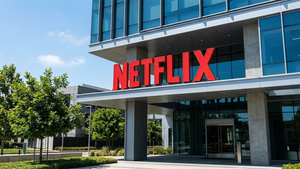
After trading down to 78% of its 52-week high, a price not seen since 2022, Wendy's Co. (NASDAQ: WEN) has become one of the best passive income strategies for retail investors today.
Favored by analysts and backed by bullish projections, this stock offers the potential upside found in consumer discretionary stocks. At the same time, Wendy's business model, which focuses on affordability and convenience, also gives it some of the characteristics found in consumer staples stocks.
Part of the low-beta stocks group, Wendy's low volatility gives shareholders another leg of stability. As long as the timing and magnitude of the interest rate cuts by the Federal Reserve remain a speculative bet, investors looking to combat stubborn inflation while still growing their investments at above-market rates may find a home in Wendy's stock.
Why Wendy's Range Matters
Over the past five years, Wendy's stock has struggled to trade outside its roughly $18 to $22 band, not giving traders more than a 22% range. The lack of big swings may give traders a headache, but this is the source of long-term investor interest.
Low volatility in this stock could make for a predictable road ahead for shareholders. Some may even choose to sell short options, both puts and calls. Essentially, that strategy seeks to collect premium income on stocks like Wendy's, which aren't expected to move much.
While the strategy behind making an income off of options premiums is more complicated, Wendy's potential for a passive income strategy doesn't stop there. Those who like to dollar-cost-average into a stable stock like Wendy's may find a slice of paradise.
Buying a certain amount of stock at a defined interval (bi-weekly or monthly) allows dividend investors to create a snowball effect in Wendy's, as the company pays shareholders an annualized dividend yield of 5.4%. This yield addresses the stubborn inflation affecting the United States and comes above the "risk-free" one-year government bond yields. In other words, passive investors could buy — and keep buying — Wendy's stock and expect to collect a reliable paycheck without the swings of traditional stocks.
Don't Be Fooled by Wendy's Size
Having a $3.8 billion market capitalization has its perks. Wendy's is a direct competitor to more extensive – and more established – companies like McDonald's Co. (NYSE: MCD), a stock that has grown to be a $203 billion behemoth. However, size doesn't always matter. The Wendy's brand is almost synonymous with McDonald's, one of the only differences being how easily investors can see their investment compound.
Often, it can be easier to grow investment capital through a smaller company, as earnings per share (EPS) advances are more easily amplified, as is the case with Wendy's financials. Analysts think McDonald's EPS will grow by 9% this year, whereas Wendy’s projections push for a rate of 12%.
Despite having better growth prospects, Wendy's still trades at a 40% discount to the eating & drinking places industry, as measured by its 18.8x P/E ratio versus its 31.5x average valuation. Wendy's is still 13% cheaper than McDonald's 21.5x P/E multiple.
Investors who prefer the size and global presence found in McDonald's would see increases in both EPS and income. But McDonald's dividend yields less than half of Wendy's at 2.5%. McDonald's stock trades at 88% of its 52-week high, providing less upside room than Wendy's 77%. Moreover, Wendy's gives investors an underperformance gap of 18% against the Consumer Discretionary Select Sector SPDR Fund (NYSEARCA: XLY) over the past 6 months.
Wall Street Likes Wendy's
Analyst price targets are set at a consensus of $22.6, reflecting a 22.3% upside from where Wendy's stock trades today. Seeing a double-digit upside could only be the beginning, as one of the biggest names on Wall Street, The Goldman Sachs Group Inc. (NYSE: GS), saw some potential in the stock.
As of March 2024, the investment bank added 21.5% to its stake in Wendy's over the past quarter. This boost reflects an allocation of roughly $2.3 million, right on time for the company's quarterly earnings announcement. In the last quarter, Wendy's reported 18.3% growth in its EPS, making the current 12% projection a potential understatement. Free cash flow (operating cash flow minus capital expenditures) grew by 28.7% over the year, allowing for more predictable dividend payouts for investors.
One last reference for investors comes through share buybacks. Management stated that there is still $310 million available to repurchase shares this year, roughly 8% of the company's size. A buyback program this big could imply that management believes the stock to be cheap at these levels.





